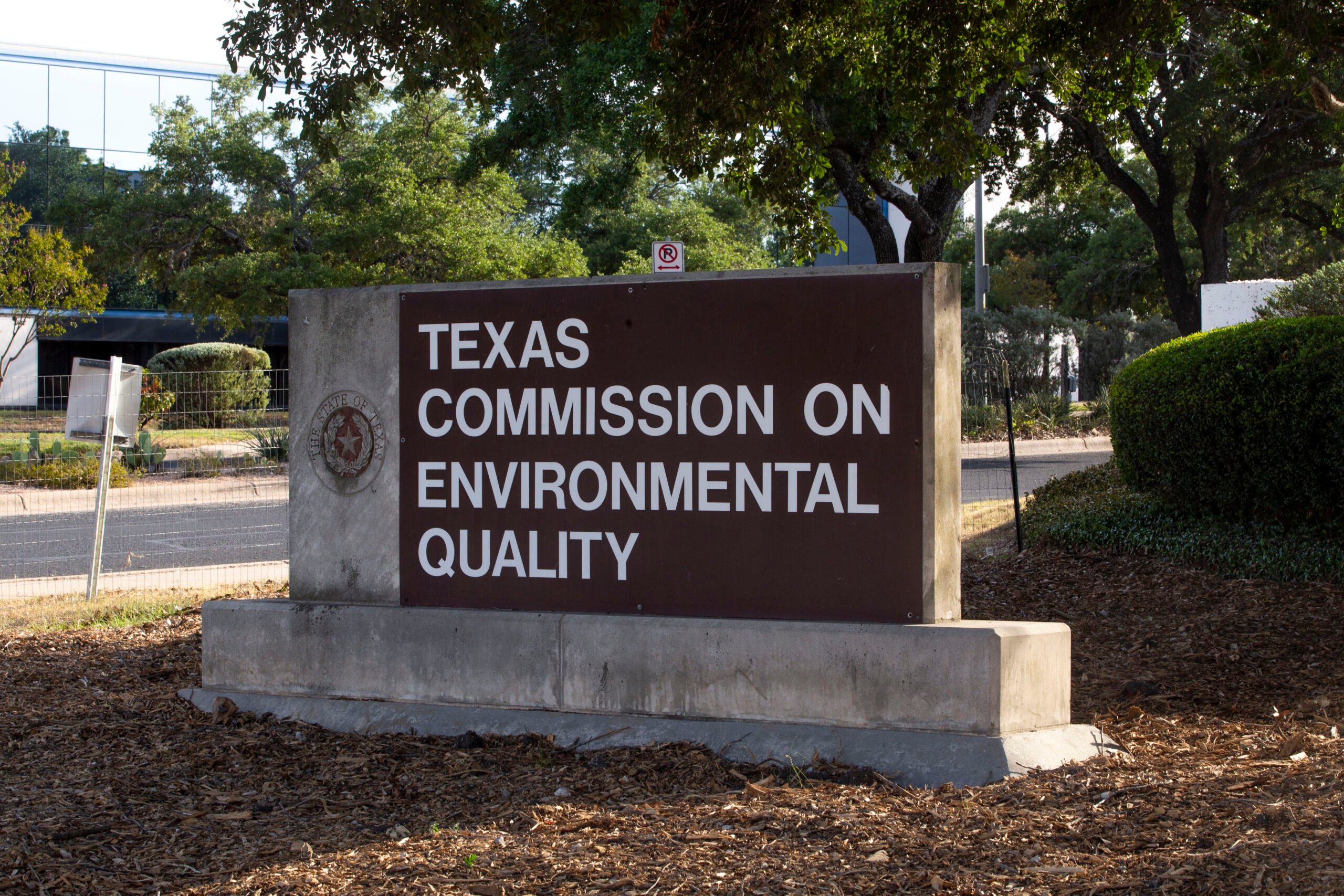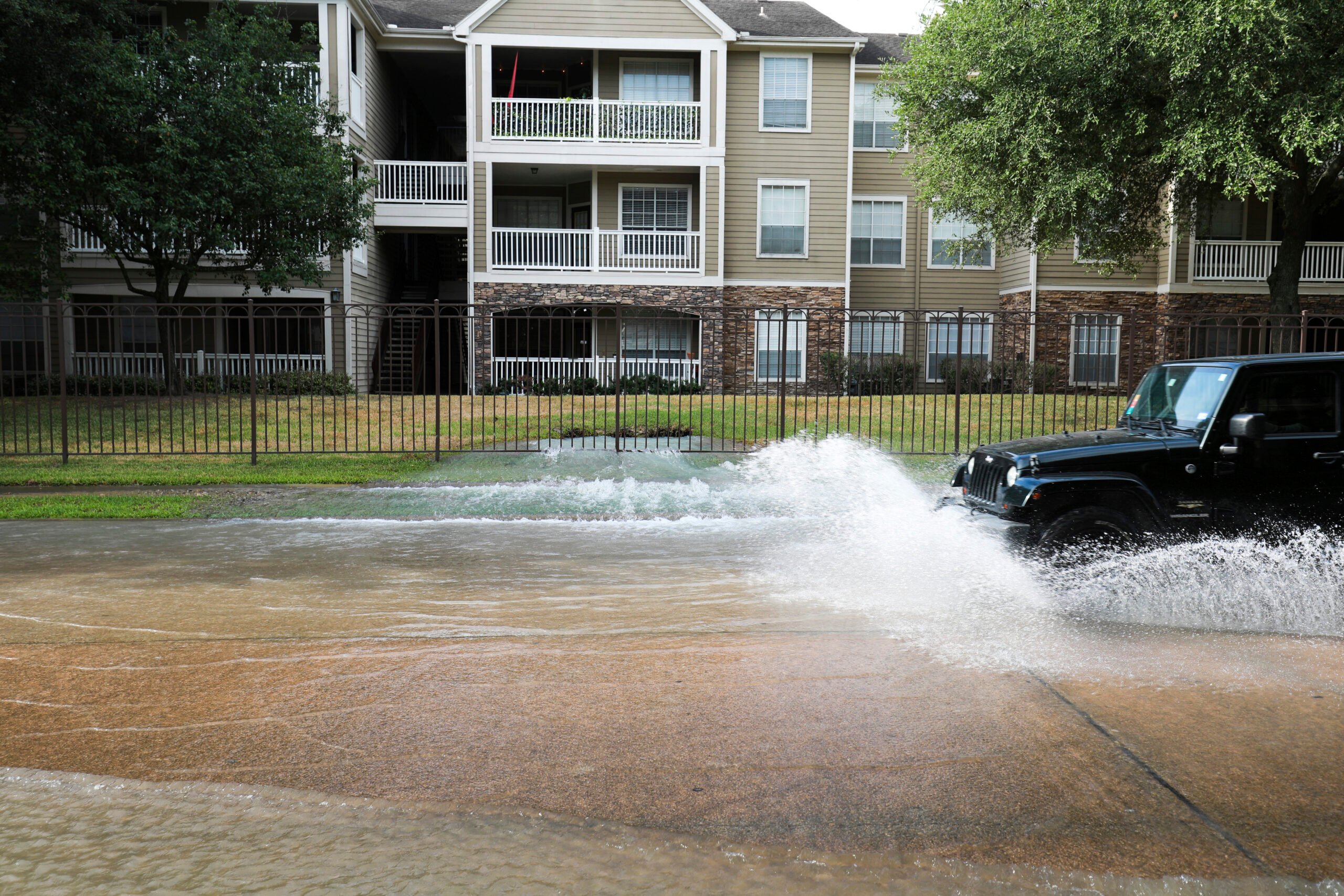
TCEQ Chairman: Reducing Smog Will Make Texans Sick
The head of the state’s environmental agency told lawmakers that lowering ozone levels will harm, rather than help, Texans.

Above: TCEQ Chairman Bryan Shaw told Texas lawmakers that smog reduction in Houston would make residents sicker, rather than healthier.
At a committee hearing Tuesday, the head of the Texas Commission on Environmental Quality (TCEQ) told lawmakers that continuing to reduce smog will not provide any “public benefits” to Texans.
“We’ve lowered the ozone standard close to the point that I’m convinced we’re not getting much, if any, benefit healthwise from [further] lowering the ozone standard,” TCEQ Chairman Bryan Shaw told a panel of legislators convened to discuss the impact federal environmental regulations might have on the Texas economy.
Shaw’s comments run contrary to decades of scientific research, but generally reflect Texas GOP lawmakers’ position against increased regulations targeting air pollutants. After the Environmental Protection Agency (EPA) announced states would need to reduce ozone levels from 75 to 70 parts per billion last year, Texas sued the agency, claiming the rule was “arbitrary,” “capricious” and “an abuse of discretion.” In legal filings, the state also argued that the EPA had disregarded evidence that indicated lowering ozone levels was “unnecessary to protect human health.”
Shaw, who was appointed by former Governor Rick Perry, maintained that line during the two-hour hearing before the House Select Committee on Federal Environmental Regulations.
“In-depth review of EPA analysis reveals there will be no public benefits,” he said. “Specifically, I’m referring to EPA’s own modelling predicting no reductions in asthma attacks in children nor respiratory hospitalizations in the elderly.”
After the hearing, TCEQ spokesperson Andrea Morrow told the Observer that Shaw drew his testimony, in part, from the EPA’s analysis of the impact of the new ozone rule which, she said, “demonstrated that there would be no statistically significant decrease” in asthma cases in children. TCEQ, she said, is “committed to using the weight of the evidence in the scientific literature to draw conclusions.”
Before Texas filed its lawsuit in December, TCEQ’s chief toxicologist, Michael Honeycutt, published a piece on the agency’s website outlining why he thinks tightening ozone standards won’t lead to better public health outcomes. In the piece, Honeycutt refers to modeling data from a single 2009 study that found that reducing the level of ozone in the air correlates to, but does not necessarily cause, an increase in deaths in Houston. Researchers found that if ozone levels are reduced to the level Texas was required to meet under the 2008 standard, there may be 47 more deaths in Houston. If the ozone level is further reduced to the new regulatory standards, it might lead to one additional death.
Researchers have attributed this result to the complexity of ozone chemistry, which can sometimes produce unexpected consequences.
However, dozens of other studies, broader in scope, have shown that ground-level ozone decreases lung function and increases cases of respiratory illnesses. Independent scientists have roundly rejected the TCEQ’s position, saying that the agency is misinterpreting data and not considering the complexity of ozone chemistry or the weight of scientific evidence on the issue.
An EPA spokesperson acknowledged that the EPA analysis cited by TCEQ had found an increase of one death per year in Houston under the stricter ozone regulations. But the agency told the Observer by email that, overall, it is is “confident” that “reducing ozone on high ozone days would lead to broad public health improvements in the urban areas we analyzed.”
At the hearing, Democrats were quick to question Shaw’s claims that the new regulations would be especially costly for the oil and energy industries. State Representative Jessica Farrar, D-Houston, said that without the new regulations, costs would increase for taxpayers if low-income residents need to be hospitalized for air quality-related illnesses and are unable to pay their bills.
“I’ve watched as we drag our feet and as we dig in and put our head in the sand and so on,” she said. “If we’ve got money for litigation, we should be using our resources to solve the problem.”
Representative Gene Wu, D-Houston, questioned Shaw about what he described as thin evidence for the correlation between ozone levels and negative health outcomes.
“Thirty years of research and medical evidence says [ozone] does have an impact,” said Wu. “So, if you find any of those studies, let me know.”
To support journalism like this, donate to the Texas Observer.

